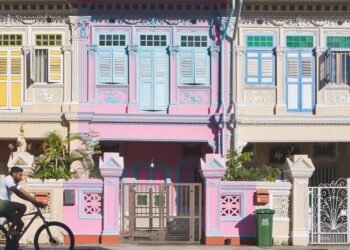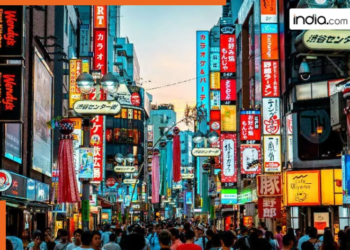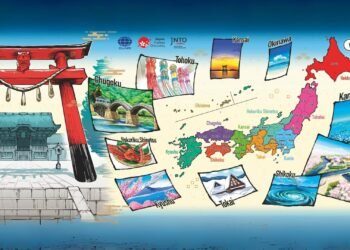SINGAPORE — Singapore’s former Transport Minister S Iswaran pleaded not guilty in court on Thursday (Jan 18) to a string of criminal charges, including taking bribes.
This came six months after the Corrupt Practices Investigation Bureau first announced it was investigating him and property tycoon Ong Beng Seng, who owns the rights to the Formula One Singapore Grand Prix and is chairman of race promoter Singapore GP.
WHAT ARE THE CHARGES AGAINST ISWARAN
The bulk of the 27 charges against Iswaran — who resigned from his political positions on Tuesday — are for receiving items worth hundreds of thousands of dollars from Mr Ong between 2015 and 2022.
He faces two charges under Section 6(a) of the Prevention of Corruption Act (PCA).
That’s Singapore’s primary anti-corruption legislation, which is complemented by other laws that deal with related forms of misconduct — including the Penal Code.
According to the two charges, Iswaran allegedly obtained gratification in the form of Singapore Grand Prix tickets worth S$145,434 from Mr Ong.
This was supposedly to advance Mr Ong’s business interests relating to an agreement between Singapore GP and the Singapore Tourism Board (STB). The latter is a statutory board under the Ministry of Trade and Industry.
Iswaran is further accused of obtaining gratification from Mr Ong involving a trip to Doha.
He’s said to have taken a flight on Mr Ong’s private plane from Singapore to Doha worth S$10,410.40.
He also allegedly received one night’s stay in the Four Seasons Doha, worth S$4,737.63, and a business class flight from Doha to Singapore worth S$5,700, in December 2022. Both were through Mr Ong’s company, Singapore GP.
These were supposedly to advance Mr Ong’s business interests in the agreement as well as a proposal for a contract with STB.
Separately, Iswaran was charged with obstruction of justice by repaying the cost of his business class flight ticket several months later.
Iswaran also faces 24 charges under Section 165 of the Penal Code. It forbids public servants from obtaining any valuable thing — for zero or inadequate consideration — from someone involved in any proceeding or business that is transacted by said public servants.
He is accused of obtaining about S$218,000 worth of valuable items in his capacity as a minister. These include tickets to shows and football matches.
Charge sheets stated that Iswaran obtained all this from Mr Ong, whom Iswaran was aware of having a connection with Iswaran’s official function as chairman of the F1 Steering Committee, through Mr Ong’s Como Holdings (UK) Limited or Singapore GP.
Mr Ong has not been charged in court. The Attorney-General’s Chambers said on Thursday that it will decide on investigations against him after the case against Iswaran is completed.
WHY WAS HE CHARGED UNDER THESE SPECIFIC STATUTES?
Asked why Iswaran was handed two similar-sounding sets of charges under separate pieces of legislation — the PCA and the Penal Code — lawyers whom CNA spoke to noted two key differences:
- Whether someone who receives a benefit has done anything in exchange for the benefit
- Whether a corrupt element is involved
Mr Adrian Wee, managing partner of Lighthouse Law, said those who violate the PCA use corrupt gratification as inducements to change or influence someone else’s behaviour.
“The idea is to procure someone to do something they were not going to do, or not do something they were supposed to do,” Mr Wee added.
According to Iswaran’s PCA charges, he is accused of corruptly obtaining flights, a hotel stay and Singapore GP tickets as inducement for advancing Mr Ong’s business interests.
While the common thread between the PCA and Section 165 of the Penal Code is that something of value changes hands, the latter is more aimed at curbing abuses of power by public servants, said Mr Wee.
It is an offence under Section 165 for a public servant to accept or obtain any thing of value, without payment or with inadequate payment, from any person with whom he is involved in an official capacity.
Mr Wee noted that a public servant can receive such a benefit without being induced or rewarded to do anything or give any favours in return. This means there may not necessarily be any corruption involved in Section 165 offences, which form the majority of Iswaran’s charges.
Mr Chooi Jing Yen, partner at Eugene Thuraisingam LLP, said it appears that offences under Section 165 are “easier to prove” because the prosecution does not need to prove that a benefit was in exchange for the receiver agreeing to do something.
Mr Chooi also said he could not find any reported case or sentencing statistics involving Section 165, during a search of LawNet — Singapore’s leading portal for legal research, information and transactions.
In 2022, Law and Home Affairs Minister K Shanmugam said the government would review the possibility of shifting offences listed under Section 161 to 165 of the Penal Code, to under the PCA instead.
In an answer to a parliamentary question, Mr Shanmugam also said that compared with offences in the PCA, Sections 161 to 165 are more targeted in scope toward tackling the various forms of bribery of, and the taking of bribes by, public servants.
As such, “there is utility in retaining these Penal Code offences, which, together with the PCA and other related laws, provide a comprehensive set of legislative levers for corruption control”, he said.
IS THERE A DIFFERENCE BETWEEN OBTAINING AND ACCEPTING BRIBES?
According to the PCA and Penal Code, those charged with corruption or Section 165 offences can be accused of “accepting” or “obtaining” gratification or valuable items. All of Iswaran’s charge sheets state that he obtained these.
Mr Wee said the implication of someone “obtaining” such things is that they asked for it, rather than being offered it.
But lawyers told CNA that from their own experience, there was no fundamental difference between obtaining and accepting bribes.
Mr Josephus Tan, director of Invictus Law Corporation, said it would not make much of a difference – in terms of the Section 165 charges – if Iswaran does go on trial. But it would matter for mitigation and sentencing if he ends up pleading guilty.
CAN PUBLIC SERVANTS RECEIVE GIFTS?
Under Singapore’s public service rules on gifts, civil servants cannot retain gifts worth more than S$50 unless they pay the market value of the gift to the government, and if it does not affect the integrity of the civil service.
Political office-holders adopt a “similar spirit and principles” in their official activities and there are specific rules spelt out in the Code of Conduct for Ministers, said Minister-in-charge of the Public Chan Chun Sing in parliament last year.
Mr Tan said a rule of thumb for all public servants is that they should not accept gifts in the form of cash, perishable goods or favours.
“We have heard real-life examples whereby they have to make formal declarations and go through an audit process — some of this can be very complicated,” he added.
Mr Chooi also pointed to Section 8 of the PCA, which imposes a presumption of corruption in certain cases. This means that Iswaran will have to prove that he received the gratification in a non-corrupt manner.
Mr Chooi said this presumption makes it “very treacherous” for public servants to receive gifts. “The only safe way to avoid liability is to either return them straight away or declare them,” he added.
WHAT COMES NEXT FOR ISWARAN?
Iswaran said on Thursday that he would contest the charges.
His next court hearing is a pre-trial conference (PTC), which is an administrative hearing where the court will ask the prosecution and defence for updates on the status of the case. The public and media are not allowed to attend.
During a PTC, the two sides can prepare for trial as well as settle any administrative matters before the trial dates are fixed. On the other hand, they could also reach an agreement to resolve the case — such as by pleading guilty — without the need for a trial.
Given the complexity and potential number of witnesses, an Iswaran trial could stretch to next year, said Mr Wee.
Other lawyers said it could take years from now till a verdict is reached.
If Iswaran is acquitted by a judge after trial, the prosecution has the option of appealing against the judge’s decision.
If the appeal is dismissed or the prosecution decides not to appeal, he cannot be prosecuted for the same charges again.
On the other hand, if Iswaran is convicted, he faces a fine or jail time or both.
Those convicted under Section 165 can be fined or jailed up to two years, or both. The law does not prescribe a maximum fine for it.
The penalty is heavier for those convicted under Section 6(a) of the PCA. They can be fined up to S$100,000 or jailed up to five years, or both.
Because Iswaran’s charges involved a contract with the government, the maximum jail term is higher — up to seven years. CNA






